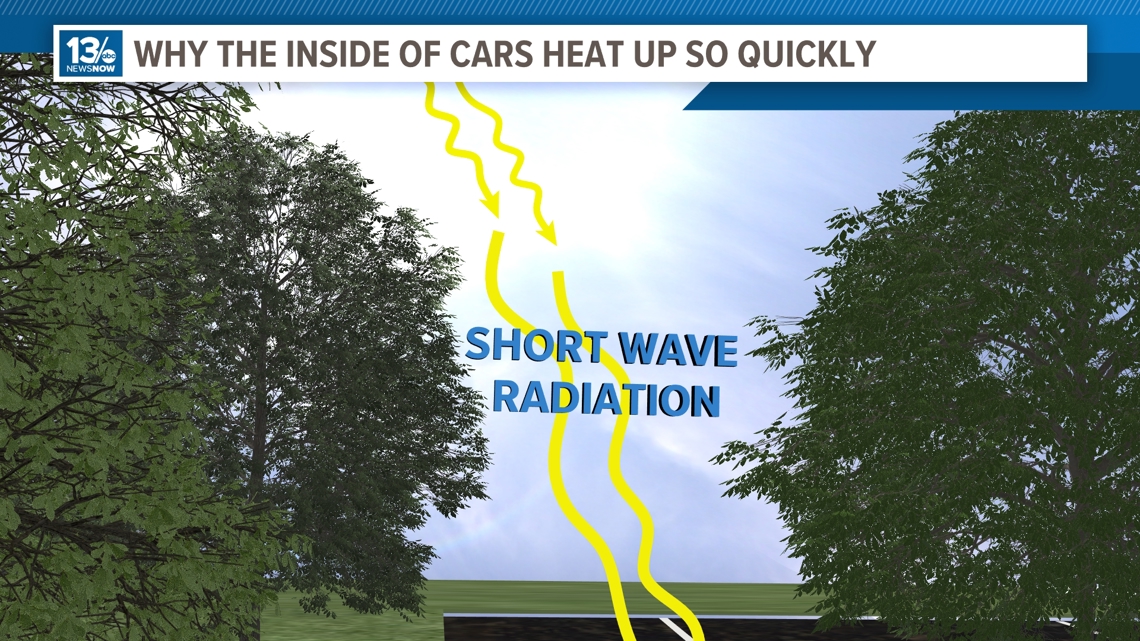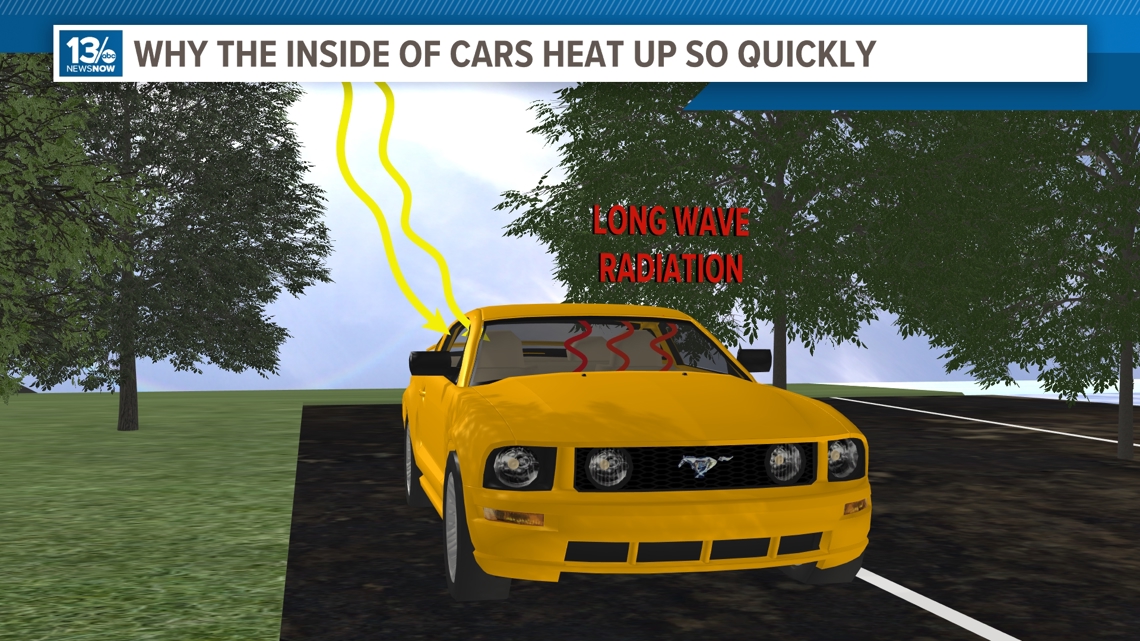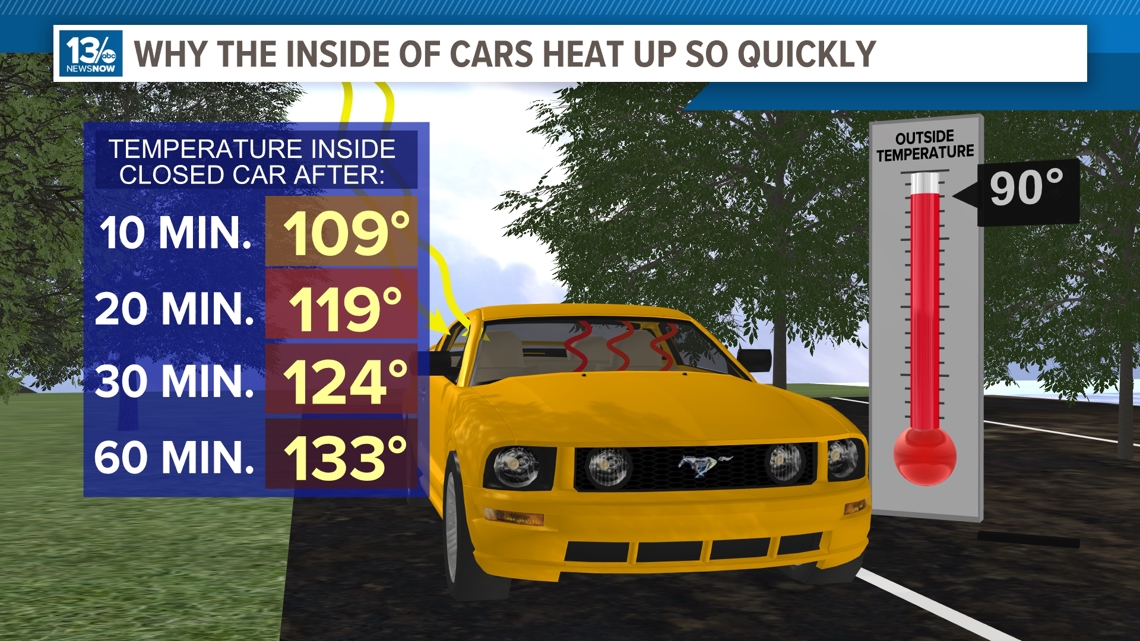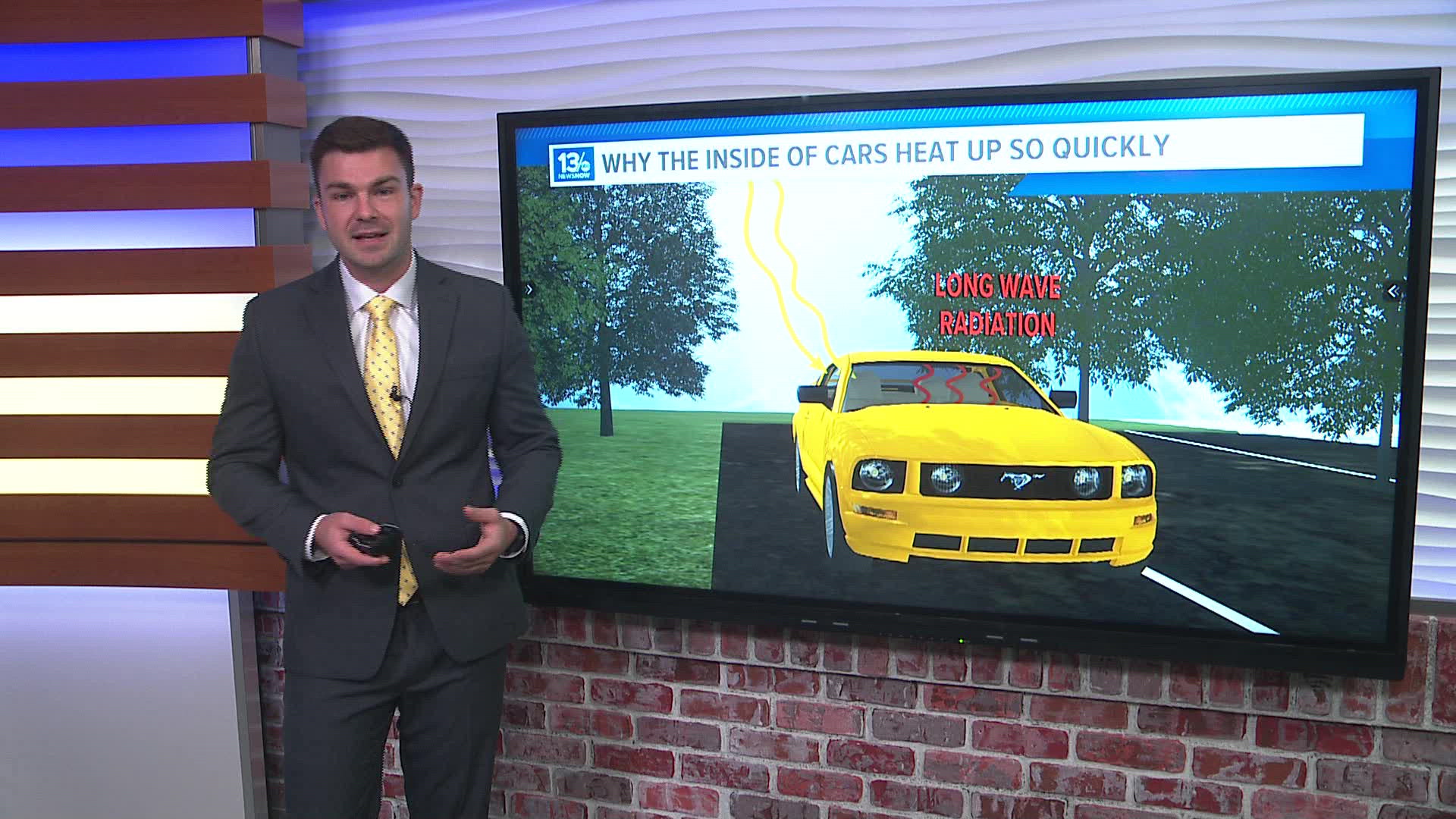VIRGINIA BEACH, Va. — Days after a dog died after being left in a car in Virginia Beach, it may be worth remembering that vehicles heat up during the summertime.
According to the Virginia Beach Police Department, the outside heat index was 90 degrees when the dog was found Wednesday, but it was much hotter inside the vehicle. With the temperatures climbing, cars may feel like a sauna, or even worse, after sitting in the sun.
But why is that the case? What actually causes our cars to heat up so quickly? In short, the greenhouse effect.
Why do cars heat up so quickly during summer?
The greenhouse effect is when short wavelengths of visible light from the sun pass through a transparent medium and are absorbed, but the longer wavelengths of the infrared re-radiation from the heated objects are unable to pass through that medium.


That is exactly what happens inside the car.
The shortwave radiation from the sun flows through our car windows and gets absorbed by things such as the seats, the floor and even the dashboard. These objects then emit longwave radiation in the form of heat.
But the catch is longwave radiation is not very permeable, so most of it isn't able to pass back through the windows and it gets trapped inside the car. That is why in the summer our vehicles can heat up very quickly.


How hot can our cars actually get during summer?
Cars can actually heat up very quickly even when temperatures don't seem to be that hot. Let's take two examples on a sunny day when the temperature is 70 degrees, and the other is 90.
On a warm, 70-degree summer day, our cars can heat up to 89 degrees within 10 minutes and if your car is parked for an hour, it can heat up to a scorching 113 degrees.
When it's 90 degrees out, our car can heat up much faster and reach higher temperatures. Take a look below:


The first 30 minutes of a car parked in the sun has the highest temperature rise compared to the next half hour. This is why it's important to not leave anything or anyone inside the vehicle, even if you're going inside for just a few minutes.
How to prevent cars from heating during hot temperatures
The best answer is to park your car in the shade because this can help significantly reduce the temperature rise.
Cracking your windows may also be a thought, but that does not do much to significantly reduce temperature rise.
According to a study by San Jose State University, temperatures inside a vehicle with the windows cracked rise at a rate of about 3.1 degrees every 5 minutes and rise at 3.4 degrees if the windows are closed.

